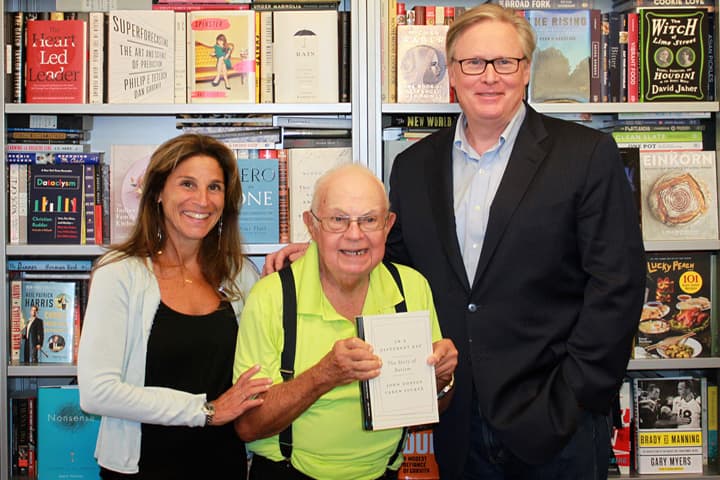Advertisement
Autism: A History
ResumeA big fresh take on autism that begins with Patient Zero.

Go back in the annals of history, read closely, and you will find people and behaviors that fit our modern understanding of autism. But until the middle of the 20th century, no one had given it a name that was more than an insult. Now, we are in the midst of what some call an epidemic of autism. But that may just be about our evolving understanding of the syndrome itself. A new history tells the story of how that understanding has deepened and spread. This hour On Point, how we’ve come to understand autism.
-- Tom Ashbrook
Guests
John Donvan, ABC News correspondent. Co-author of "In A Different Key: The Story of Autism." Occasional On Point guest-host. (@JohnDonvan)
Caren Zucker, TV producer for ABC News. Co-author of "In A Different Key." (@caren_zucker)
Christine Wu Nordahl, assistant professor in the department of psychiatry and behavioral sciences at the UC Davis MIND Institute.
From Tom’s Reading List
The Atlantic: Autism’s First Child — " Today, physicians, parents, and politicians regularly speak of an 'epidemic' of autism. The rate of ASDs, which come in a range of forms and widely varying degrees of severity—hence spectrum—has been accelerating dramatically since the early 1990s, and some form of ASD is now estimated to affect one in every 110 American children. And nobody knows why.
NPR's All Things Considered: 'In A Different Key' Traces History And Politics Of Autism — "The truth is that we don't really know whether there has been an epidemic. And I know that sounds strange to people, because they hear so much more about autism now than they ever have before, but what we think is that there has been an explosion in autism diagnoses, which is different from there being more autism. We started looking for autism, so found it. Also, at the same time, what we call autism became a much, much broader spectrum, and the definition kept changing over time."
New Yorker: Seeing the Spectrum — "The discovery of autism carried with it the insistence that it had always been there. Retrospective diagnosis is now something of a subspecialty for both psychologists and historians, and the catalogue of famous figures who have been placed on the spectrum now includes Newton, Mozart, Beethoven, Jane Austen, Kant, Jefferson, Darwin, Lewis Carroll, Emily Dickinson, and Wittgenstein. But the past was presumably populated with countless uncelebrated people who might have received a diagnosis."
Read An Excerpt Of "In A Different Key"
By John Donvan and Caren Zucker
This program aired on January 21, 2016.